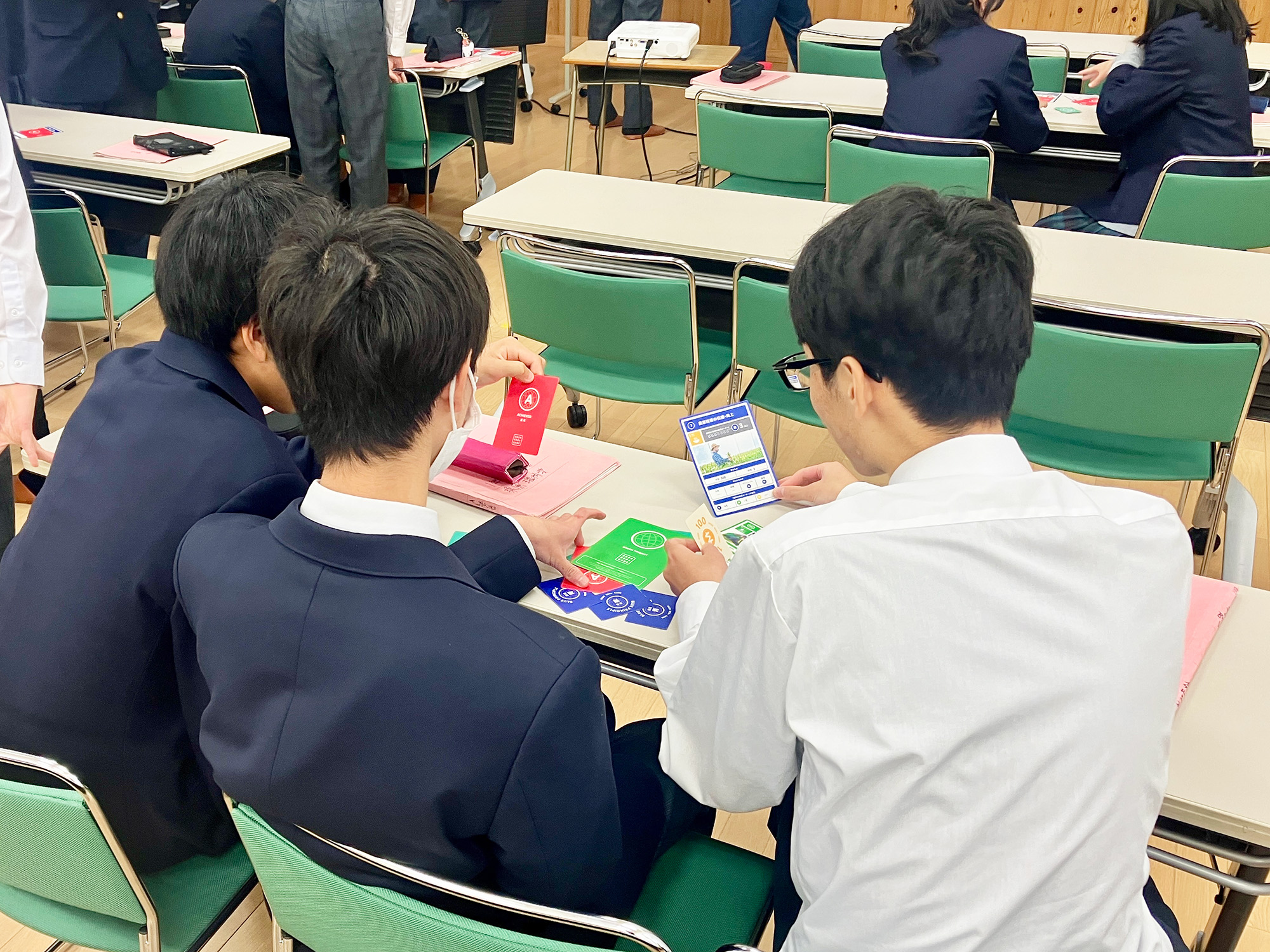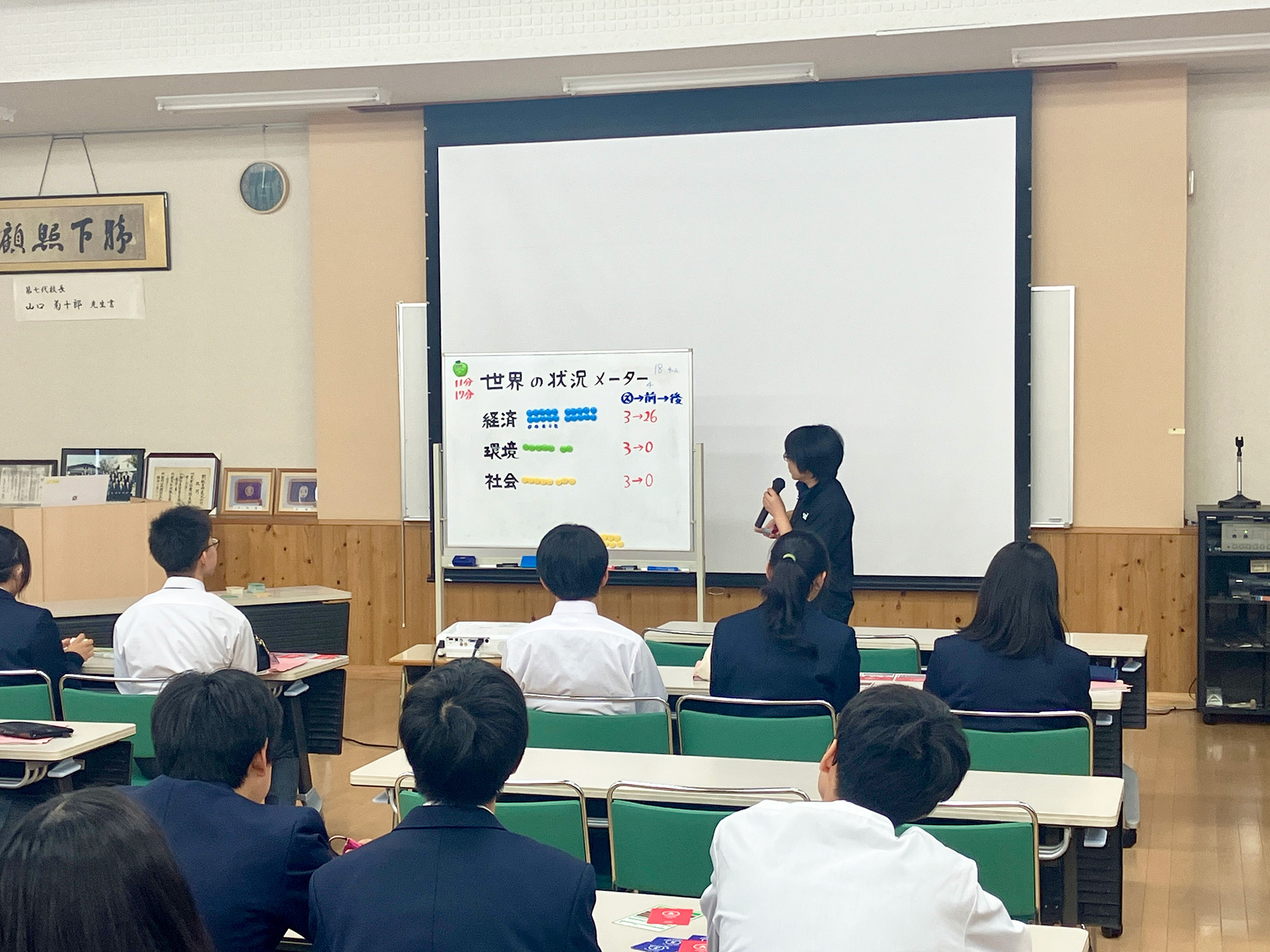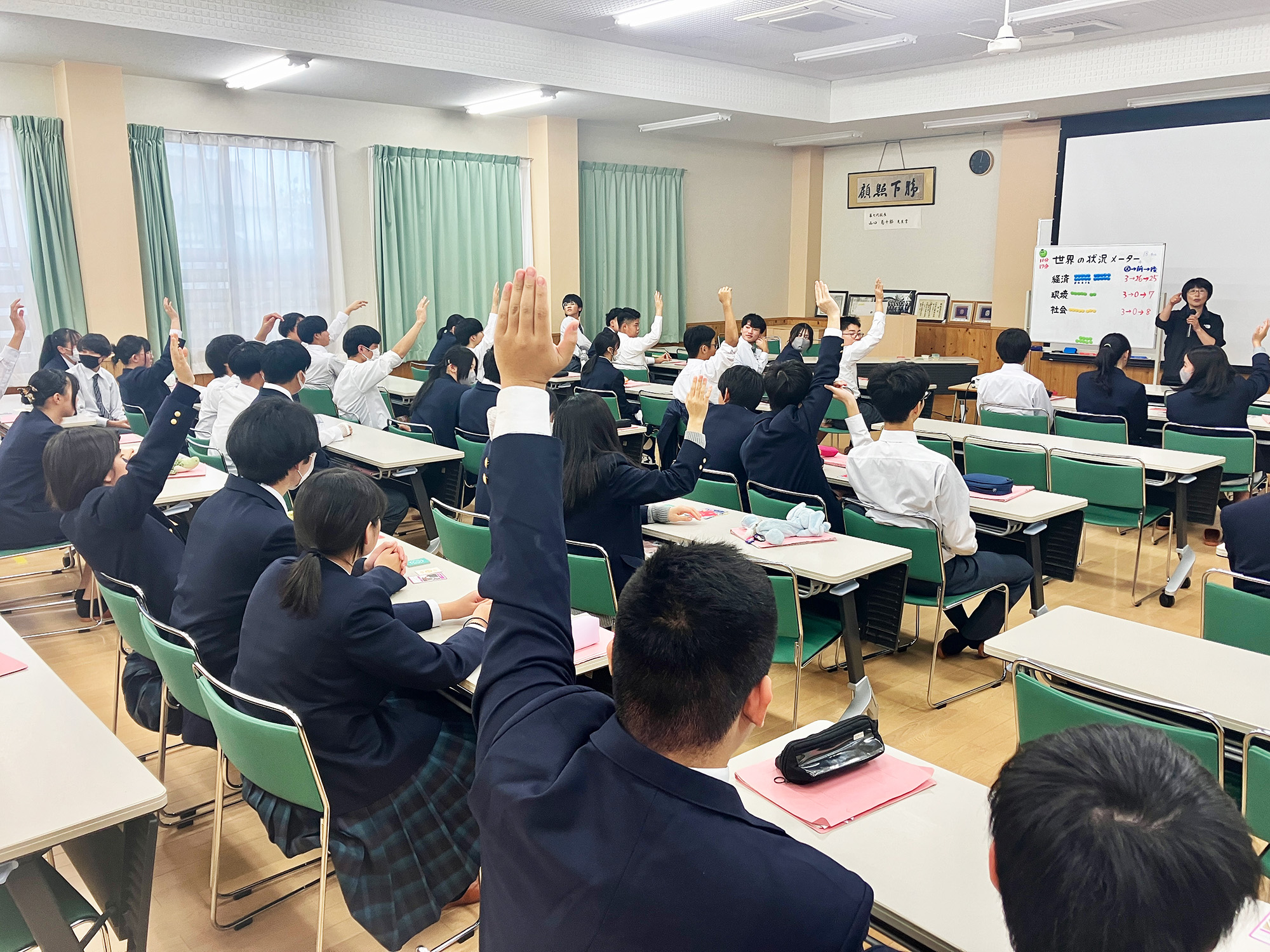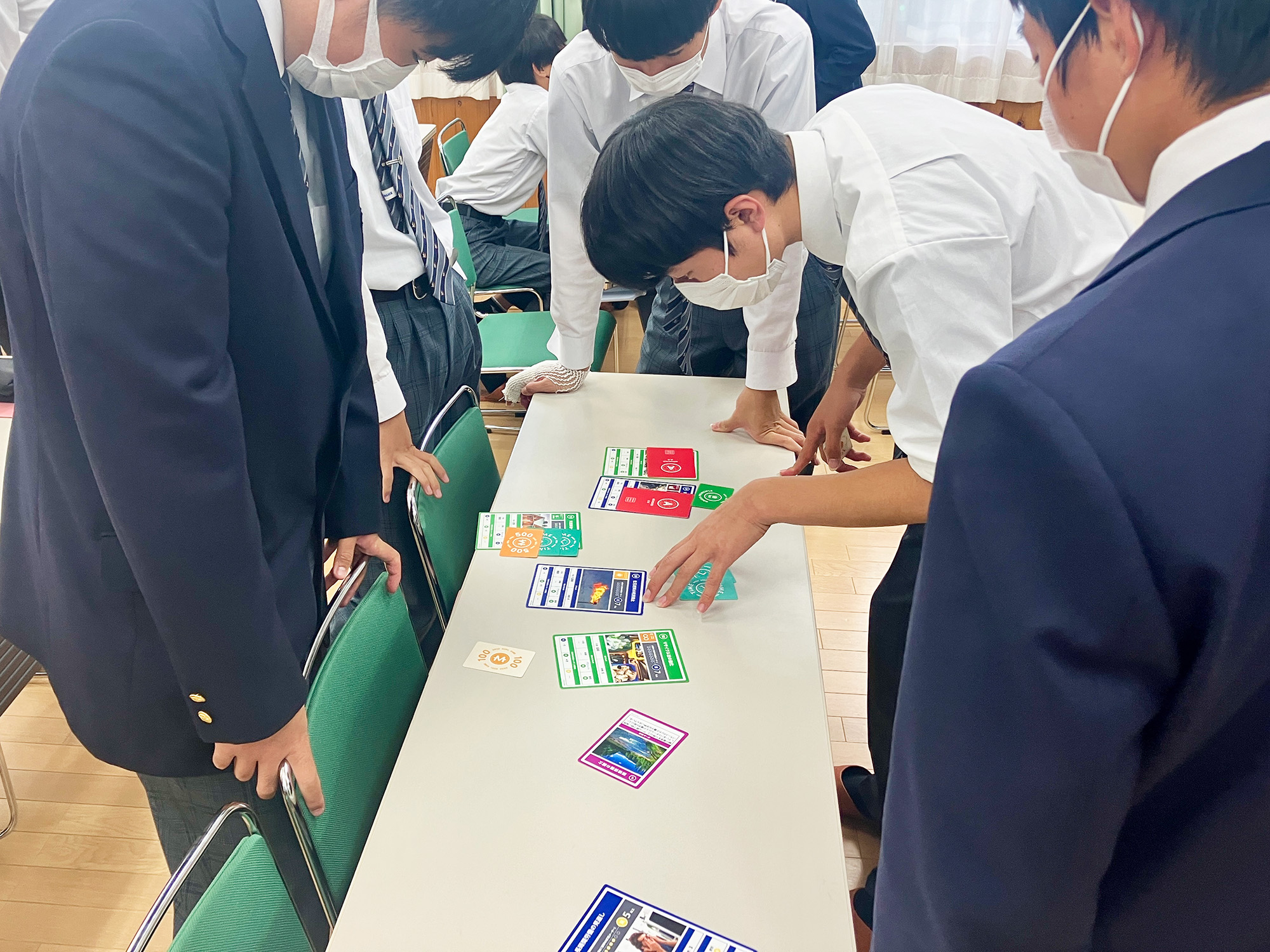1年生の北信州学の授業にて、カードゲームを使ってSDGsの理解を深めました。分かれた18グループはそれぞれが一つの国になり、与えられた目標を達成するために、活動を実施していきました。しかし、自分の目標を優先するあまり、状況メーターが示す環境や社会の豊かさの指標はあっという間に悪化していきました。SDGsの理念である「誰一人取り残さない」ことと経済だけでない豊かさの両立を目指してゲームを再開しました。最終的に経済の豊かさはそのままに、環境や社会の豊かさを最後には取り戻し、ほぼ全てのチームが目標を達成することもできました。
仮想のカードゲームですが、環境や社会を良くするにはお金は必要である、経済を無視してはお金が生まれてこない、一度失われた環境を取り戻すには膨大な時間が必要など、社会がどうなっていくかを考え体験する良い機会になりました。
In our Kitashinshu Studies class, first-year students engaged in a card game to deepen their understanding of the SDGs (Sustainable Development Goals). Each of the 18 groups represented a country and implemented projects to achieve their given goals. However, as each group focused too much on their own objectives, the indicators of environmental and social well-being on the status meter quickly declined. This led to a restart of the game, encouraging students to balance “leaving no one behind,” the central philosophy of the SDGs, with prosperity that goes beyond economic success.
In the end, nearly all teams achieved their goals while also restoring environmental and social richness. Though it was a virtual card game, it provided a valuable chance to think about and experience the development of society. Students learned that money is essential to improving the environment and society, that economic stability is crucial for generating resources, and crucially, that once lost, environmental health takes a great deal of time to recover.




